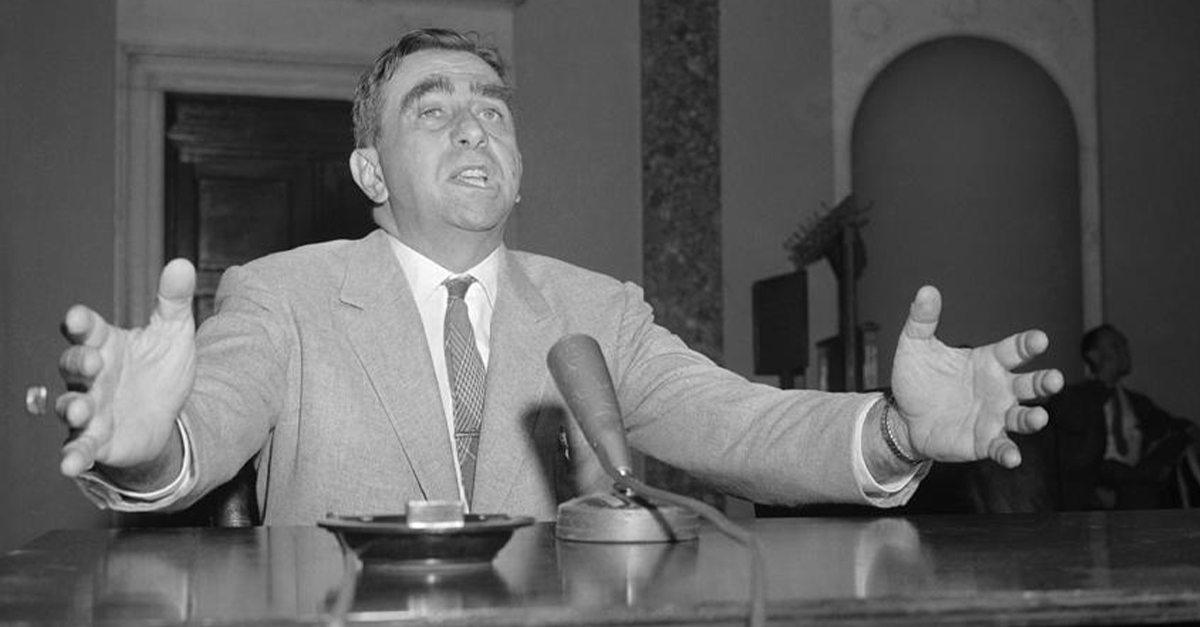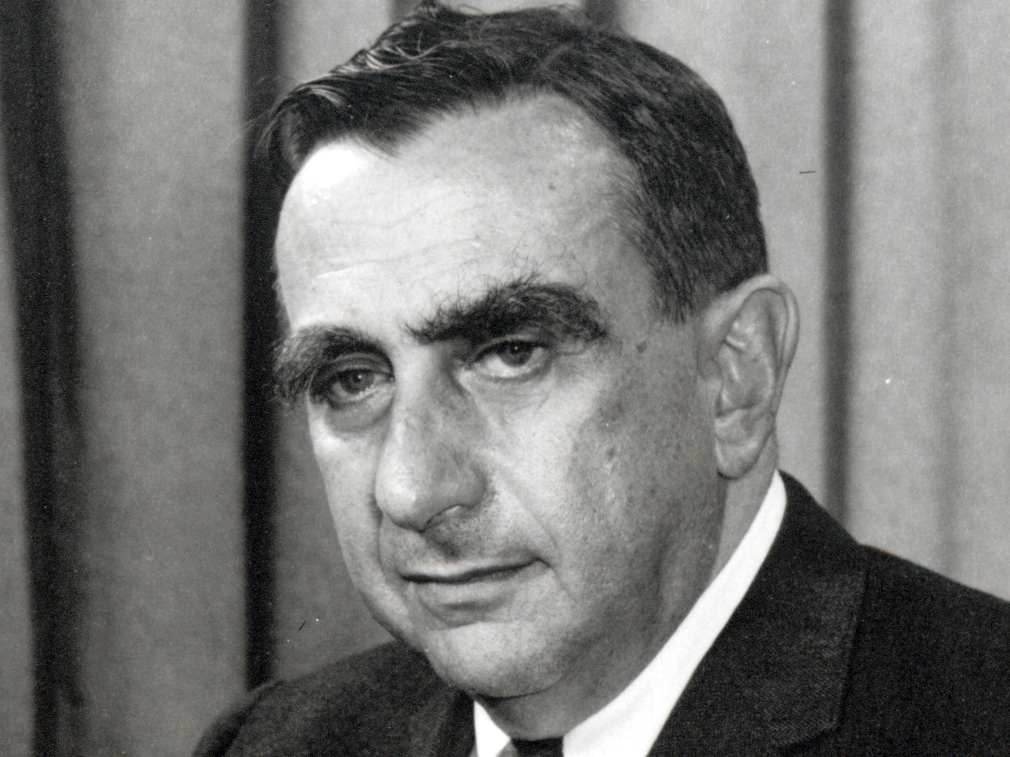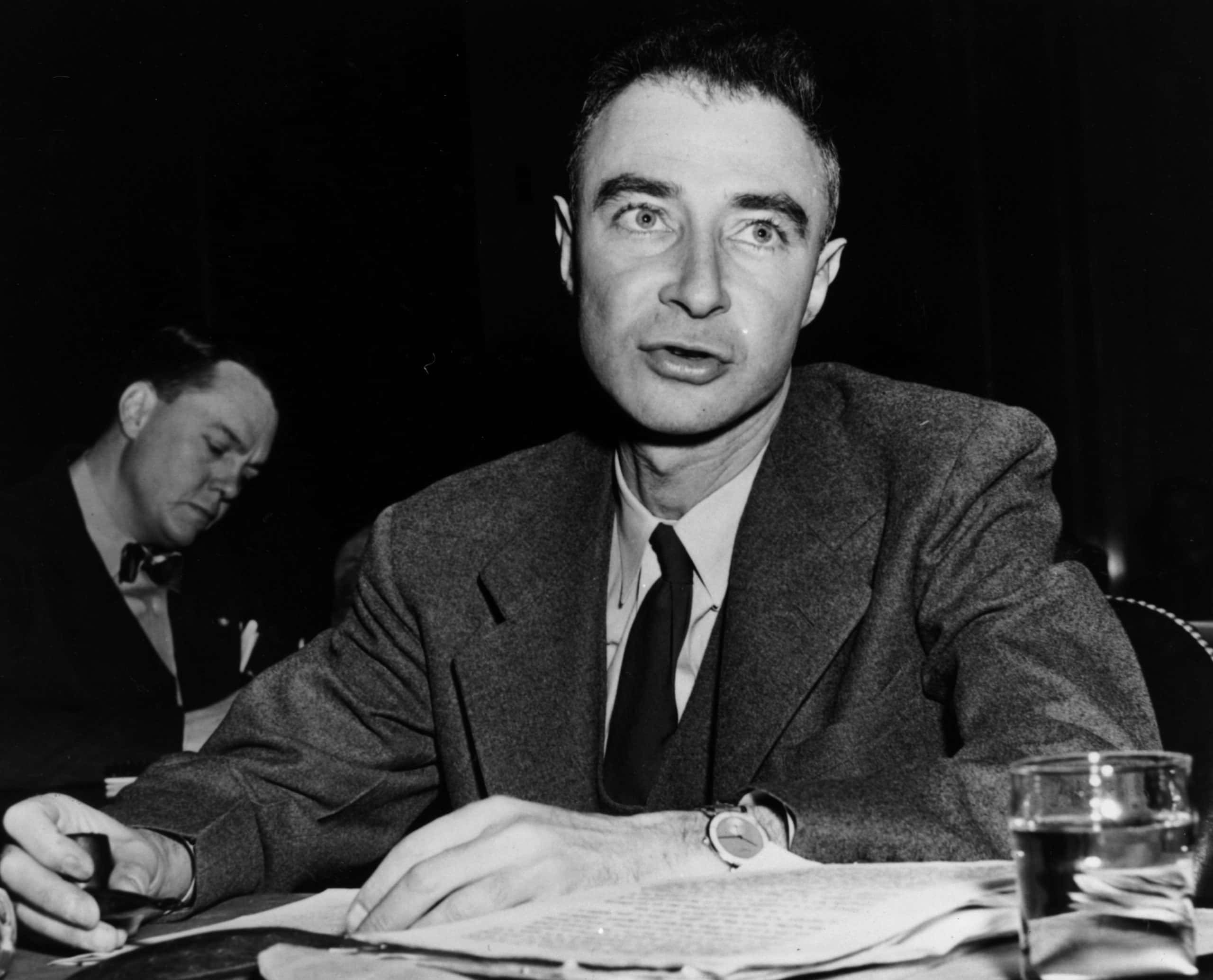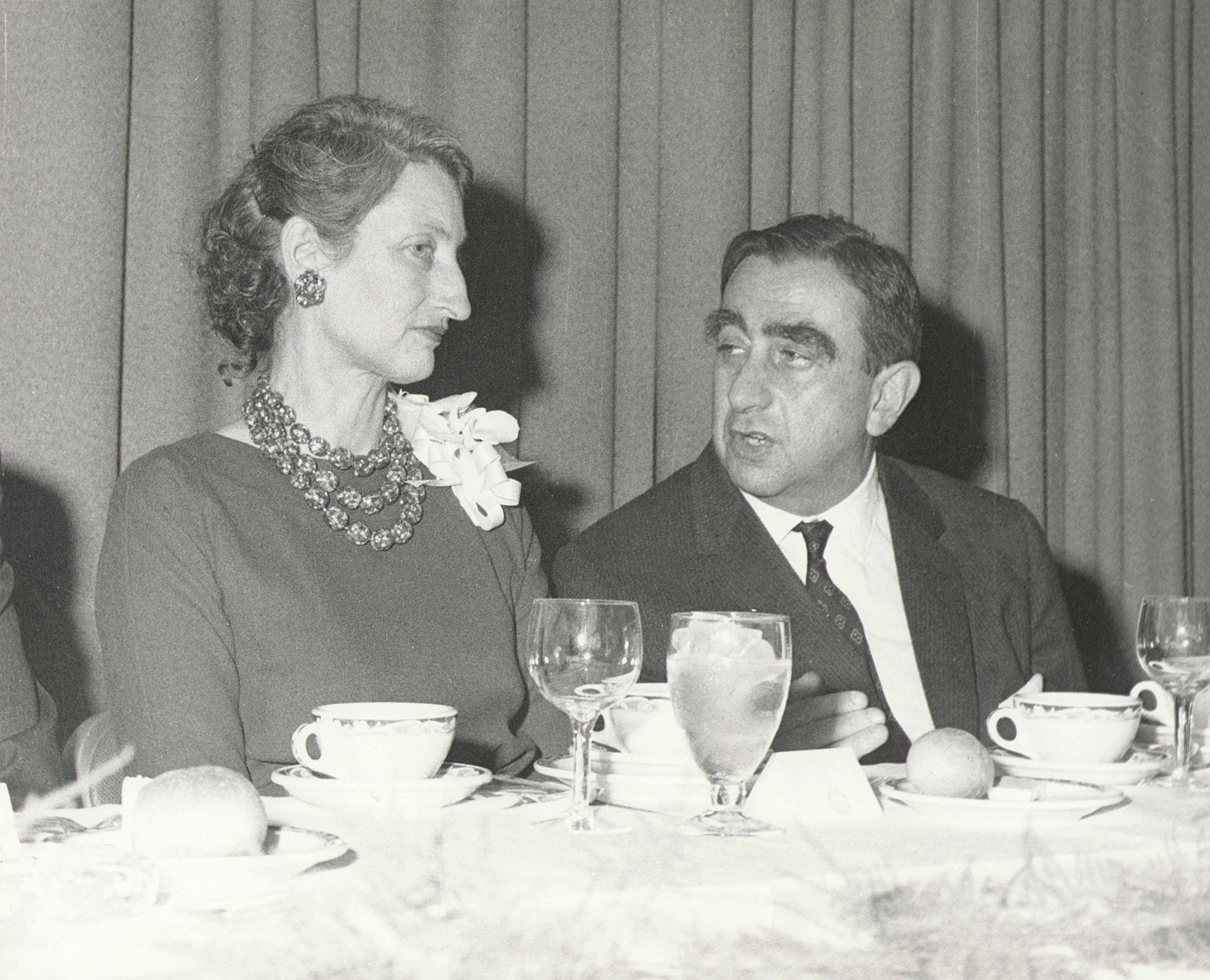After WWII as the Cold War escalated, tensions in the American scientific community culminated in the 1954 security hearing of J Robert Oppenheimer, "father of the atomic bomb". Physicist Edward Teller gave testimony that led to the revocation of Oppenheimer’s security clearance. The fallout from Teller’s testimony would haunt his reputation for decades.
A Clash Of Visions
Edward Teller and Robert Oppenheimer had long represented two diverging philosophies in the post-war era. Oppenheimer, after leading the Manhattan Project to develop the first atomic device, became a vocal advocate for arms control and a cautious approach to nuclear proliferation.
He Pushed For A Bigger And Better Bomb
Teller, on the other hand, was a staunch supporter of more advanced nuclear weapons technology, including the far more destructive hydrogen bomb. Teller himself was even rumored to be the inspiration for Dr Strangelove, the main character in Stanley Kubrick’s satirical 1964 movie on nuclear conflict. His and Oppenheimer’s disagreements mirrored the broader debate about the direction of US nuclear policy during the 1950s.
The Two Had A History
Oppenheimer and Teller had worked together as part of the team developing the first nuclear fission device on the Manhattan Project. But as the project took shape, Teller lost interest in what they were doing, preferring to launch himself into the study of a potential fusion device. This was the genesis of the hydrogen bomb. Though Oppenheimer kept Teller on the overall project, he removed him from the core team of engineers.
What Teller Told Them
During Oppenheimer’s security hearing, which was largely driven by political fears and personal vendettas, Teller was called as a witness. While many scientists defended Oppenheimer, Teller struck a different tone. He stated, "I would feel more secure if public matters would rest in other hands."
Oppenheimer Loses His Security Clearance
Though he stopped short of directly accusing Oppenheimer of disloyalty, his words were seen as a clear suggestion that Oppenheimer could not be trusted with national security secrets. This statement was pivotal in swaying the decision to strip Oppenheimer of his security clearance.
The Scientific Community’s Backlash
Teller’s testimony was met with immediate and widespread condemnation from his peers. Many in the scientific community viewed Oppenheimer as a hero—not only for his role in ending WWII but also for his principled stance on limiting the nuclear arms race.
They Turned His Back On Him
Teller’s actions were seen as opportunistic and disloyal, aligning himself with political forces eager to silence Oppenheimer’s influence. Following the hearing, Teller found himself ostracized by many colleagues. At scientific conferences, former friends and collaborators refused to speak to him or even shake his hand.
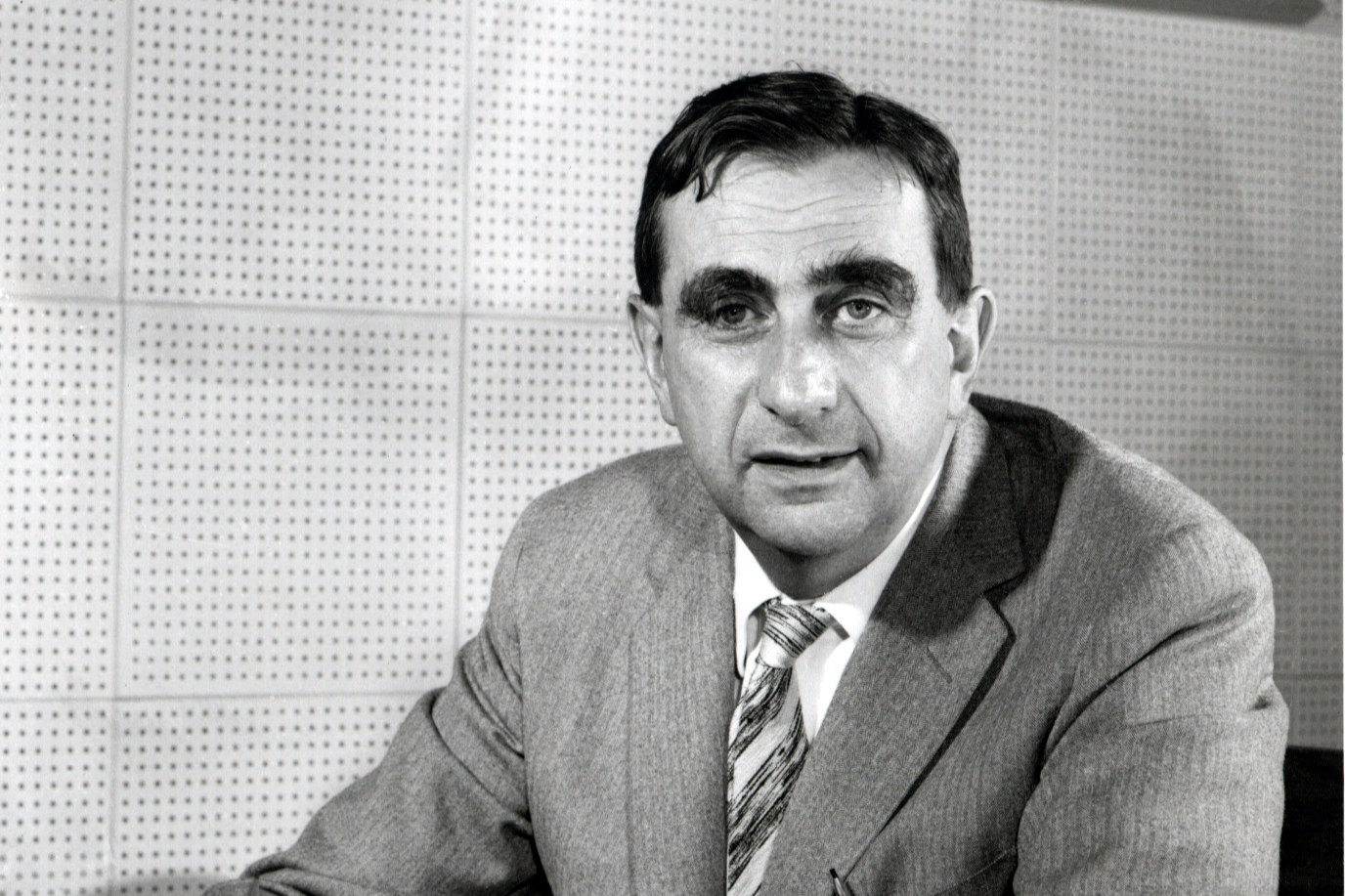 w:User:Greg Lderivative work: Greg A L (talk), Wikimedia Commons
w:User:Greg Lderivative work: Greg A L (talk), Wikimedia Commons
Career Opportunities And Isolation
While Teller’s reputation among scientists suffered, his relationship with the US government strengthened. He became a leading figure in advancing the hydrogen bomb program. His career advanced in terms of influence and funding, and he was the recipient of numerous awards for his work. But Teller remained a polarizing figure, often working in isolation from the colleagues that once respected him.
A Legacy Of Distrust
Years after the hearing, Teller struggled with the perception that he had sacrificed a colleague to further his own ambitions. Teller defended his testimony as honest concern for national security, but many scientists were furious, believing that he’d abandoned the values of scientific cameraderie and free thought in the face of political pressure.

History's most fascinating stories and darkest secrets, delivered to your inbox daily.
Reflections In Later Life
In his later years, Teller expressed regret—not for his testimony itself, but for the consequences it had on Oppenheimer and on his own standing among peers. He admitted that the rejection by fellow scientists was one of the most painful experiences of his life. But he still believed nuclear deterrence was necessary for US security. His commitment to this concept led to the development of far more destructive technology than that used at Hiroshima and Nagasaki.
A Divisive Figure In Scientific History
Teller’s testimony against Oppenheimer highlighted the divisions between those advocating for nuclear restraint and those pushing for superiority in the arms race. Teller’s role in shaping US defense policy is undeniable, but testifying against Oppenheimer cast a shadow over his legacy as a brilliant but tragically isolated figure in the annals of science.
You May Also Like:
42 Facts About the Chernobyl Disaster
Mind-Blowing Cold War Facts That Most People Don't Know

